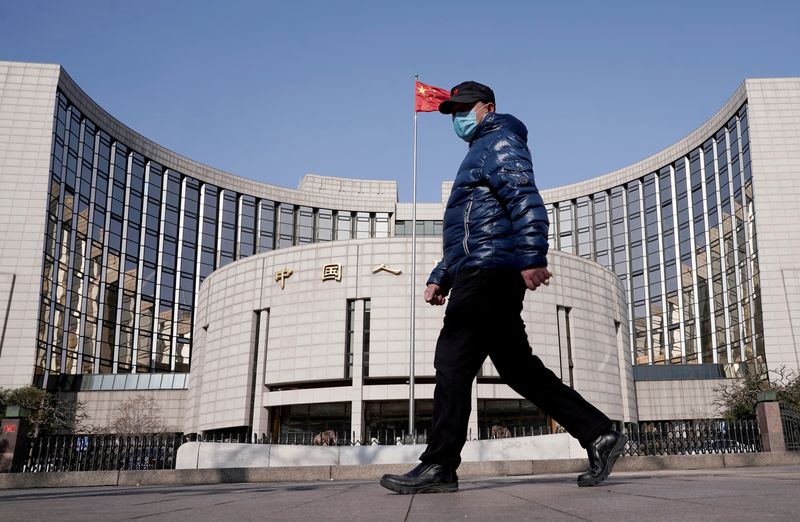SHANGHAI (Reuters) - China is expected to keep benchmark lending rates unchanged for the third straight month on Monday, a Reuters survey showed, as policymakers remain reluctant to drive the yuan lower by further easing monetary conditions.
The loan prime rate (LPR), which banks normally charge their best clients, is calculated each month after 18 designated commercial banks submit proposed rates to the People's Bank of China (PBOC).
In a poll of 22 market watchers conducted this week, all participants predicted no change to the one-year LPR. However, five participants, or 23%, expected a reduction to the five-year tenor.
Most new and outstanding loans in China are based on the one-year LPR, which stands at 3.65%. The five-year rate influences the pricing of mortgages and is now at 4.30%. China last cut both LPRs in August to boost the economy.
"We expect the one-year LPR to remain unchanged at 3.65% as the PBOC kept the medium-term lending facility (MLF) rate flat in November," analysts at Barclays (LON:BARC) said in a note.
The central bank partially rolled over maturing MLF loans earlier this week and kept the interest rate unchanged for a third straight month, suggesting policymakers remain wary of stoking further yuan weakness by easing monetary conditions.
Authorities are seeking to support economic growth without triggering financial instability. Lowering interest rates to prop up the slowing economy could further widen China's monetary policy against major economies, especially the United States, which could encourage capital outflows.
The yuan has already lost about 11% to the dollar this year and looks set for the biggest annual loss since 1994.
The MLF rate serves as a guide to the LPR and markets mostly use the medium-term rate as a precursor to any changes to the lending benchmarks.
Still, some traders and analysts expect additional official moves to rescue the embattled property sector by lowering mortgage benchmark to revive housing demand.

"A cut in the five-year LPR will be perceived as an encouraging signal to support the property sector," said Ken Cheung, chief Asian FX strategist at Mizuho Bank.
"Overall, the government measures should help mitigate both solvency and liquidity risks for developers immediately but it will still take time to reverse the property sector downtrend and the development of property market is far from certain."